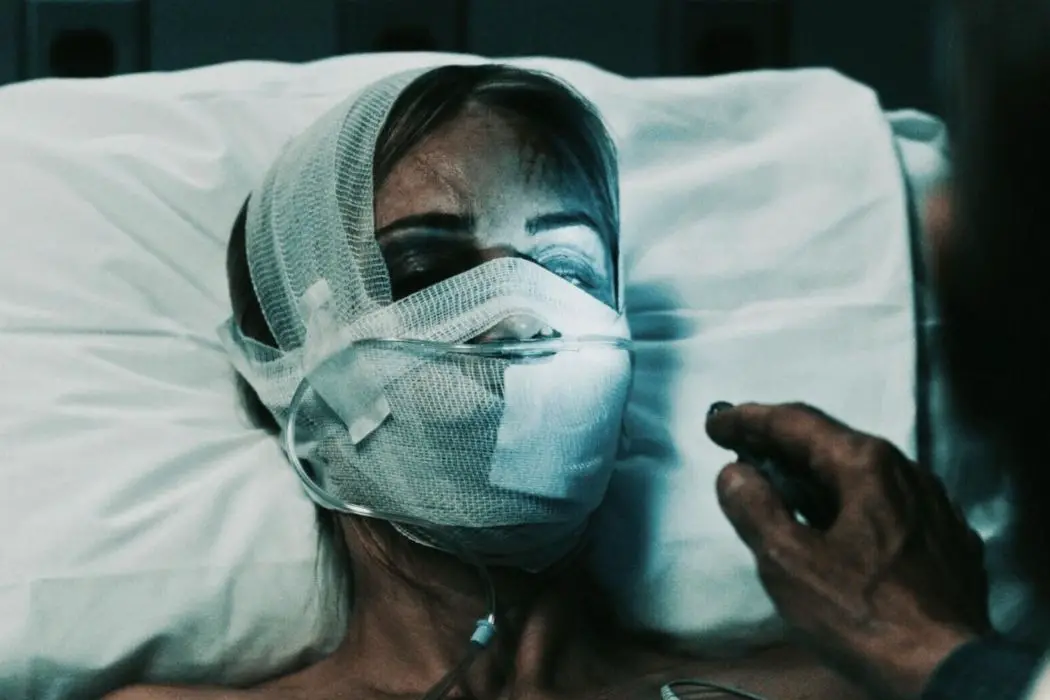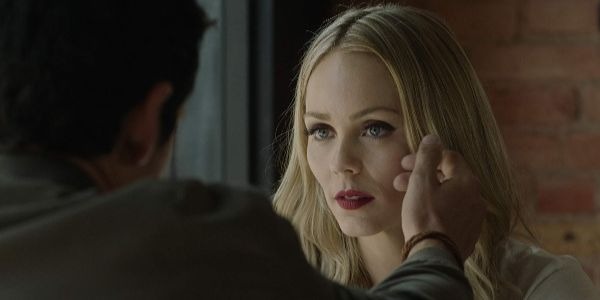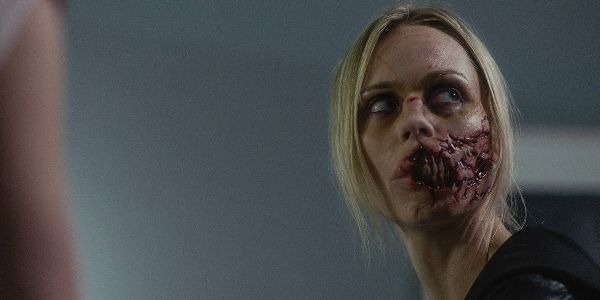RABID: A Remake With An Identity Of Its Own

I'm a geeky, yet lovable film fan who adores horror…
Tell the internet there’s going to be a remake of a classic David Cronenberg film and you’ll have some general grumbling and unhappiness. Tell the internet it will be helmed by two women and you’ll have riots. Rabid, Jen and Sylvia Soska’s take on the classic Cronenberg original is a film that’s bound to be controversial, because it takes the basic premise and honours it, while also meticulously crafting an identity of its own.
Rabid is the story of a woman named Rose (played by Laura Vandervoort), a bit of an ugly duckling, a woman so insecure and quiet, it’s almost infuriating. Rose gets into a horrifying accident, which permanently damages and scars her face, leaving her even more insecure about her looks. A new, experimental treatment offers Rose the chance to not only fix her mangled face, but to transform her into a completely new woman, brimming with confidence. The treatment also brings forth some strange new cravings and feelings that lead to a disastrous ending for everyone.
Femininity In A Genre Dominated By Men
The horror genre is very male and very masculine by default. Sure, we have plenty of empowering female heroes (I even wrote about it) but behind the camera it’s often men who get to tell these stories of women. These often include extreme and sexual violence inflicted upon the female body, almost to a fetishizing degree sometimes. We see a lot of stabbing and slashing with villains wielding hugely phallic weapons and unusually large knives, which often penetrate the bodies of women.

Personally, The Soska Sisters were my first touch upon the ladies of horror. I felt I was often in very male-filled spaces with horror. I saw A Serbian Film in a theatre, at 3am at a film festival surrounded by men and I don’t think I’ve ever been quite so uncomfortable and aware of my gender. American Mary was my first experience of a horror film made by and for women and The Soska Sisters show much growth and maturity with Rabid. There has of course been several female-led and -made horror films, but Jen and Sylvia Soska craft incredibly visceral, gory and physical cinematic experiences and Rabid is in no way an exception to this.
Delightfully gory and gleefully violent, Rabid is not for the faint of heart. Somehow, it might still be The Soska Sisters’ most accessible, easily digested film. It’s a classic story of an underdog who rises to power and self-agency, which will always work on screen but The Soskas bring enough visual flair and style into it to make it stand out from the crowd. Rabid is fundamentally also about the female experience. Rose struggles with her looks, like we all have and do, whether or not we want to admit it. It’s a story about a woman who has to find her inner confidence and when she does, she finally finds happiness, but the happiness also comes with a terrible cost. Don’t you just hate it when you become pretty but also kind of crave blood? It speaks to women about our experience in the world, how everything we gain comes with a price. Rabid might not have the grace of Raw or intensity of Revenge, but it’s a fascination addition to the genre.
What Works And What Doesn’t
Not everything works perfectly; it never quite finds its footing and pacing. It’s at its best when filling the screen with fake blood and loose limbs. The Soskas don’t quite hit all the notes of the story and never find the perfect balance between the violence and the more emotional beats of the story. It often feels a little too full; we’re introduced too many characters who leave absolutely no mark or have any meaningful inner lives. Most of them are indeed just cannon fodder, which is to be expected from such a violent horror film, but the film would have benefited from a slightly more focused look at the people close to Rose.

There are elements of camp here too, but The Soskas don’t lean into these enough to let them flourish. The film is grim and a little fun would have lifted the film nicely at points. That being said, no one will seek out Rabid for the humour, but for the dark and twisty story and let’s face it, the violence. And on that front, The Twisted Twins do not disappoint. The violence is staged impeccably and there’s a certain elegance to it too. It’s a little messy, but it makes it all the more visceral. The balance between the messy violence and the cool, sexy production design make Rabid a fascinating visual experience.
Laura Vandervoort is enigmatic as Rose, even if she can’t quite sell her as the ugly duckling in the beginning. She expresses Rose’s insecurity and eventual despair and fear with conviction and pathos and makes her an engaging lead character. She isn’t necessarily always likable and she makes some truly terrible decisions but that’s precisely why the film works as well as it does. This is a Rose that we can all relate to and root for.
Another reason why the film works is because The Soska Sisters have the courage to take the story to a wildly different direction. In their version, Rose is a very active agent in her own story rather than a passive damsel in distress. It makes for a much more interesting and rich text, especially since Rose is a very flawed character to begin with. Die-hard Cronenberg fans will surely be disappointed in this, but The Soska Sisters demonstrate plenty of knowledge and love for Cronenberg’s original film, with more or less subtle nods to it sprinkled throughout their version.

Rabid: Foaming At The Mouth Or Too Neutered?
As stated earlier, not everything work flawlessly. It’s an imperfect film, but it showcases much growth and maturity as well as further potential from Jen and Sylvia Soska. They tell Rose’s story with a firm hand and much confidence, while simultaneously shaping the world of horror to be a more inclusive and tolerant space for women.
Laura Vandervoort carries the film with charisma and provides a grounding point when the film threatens to go off the rails. Her transforming performance is similar to that of AnnaLynne McCord in Excision, completely fearless and never self-aware. Rabid is a reboot done right; it honours the original, but never bows down in front of it, telling its own story on its own terms.
Have you seen Rabid? What did you think? Let us know in the comments!
Rabid will open in select theatres and digitally December 13th in the US.
Does content like this matter to you?
Become a Member and support film journalism. Unlock access to all of Film Inquiry`s great articles. Join a community of like-minded readers who are passionate about cinema - get access to our private members Network, give back to independent filmmakers, and more.
I'm a geeky, yet lovable film fan who adores horror cinema, musicals and my dog Geordie La Forge. I'm from Finland, but based in London.












